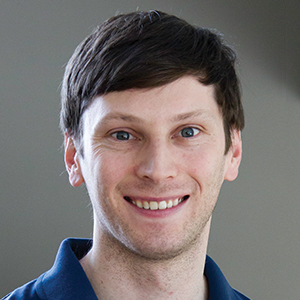Member update: April 2019
Weiss named Indiana U distinguished professor
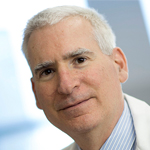 Michael A. Weiss
Michael A. Weiss
Indiana University has appointed Michael A. Weiss, the Robert A. Harris professor of biochemistry and molecular biology, as a distinguished professor.
Weiss is one of 10 IU faculty members who in December received distinguished professorships, the university’s highest academic rank for educators or researchers. Distinguished professors are chosen for their outstanding achievement in teaching, scholarship, innovation and leadership.
Weiss’ research focuses on two areas: insulin signaling with application to diabetes mellitus and sex determination with application to genetic infertility syndromes.
In 2009, he founded Thermalin Inc., a biotechnology company that designs and develops novel insulin analogs.
Weiss and the other distinguished professors were honored in March at the university’s distinguished professor symposia.
Glycobiology society honors Taniguchi
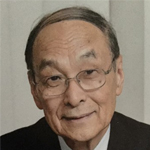 Naoyuki Taniguchi
Naoyuki Taniguchi
The Society for Glycobiology has given the 2018 Karl Meyer Award to Osaka University professor emeritus Naoyuki Taniguchi.
Established in 1990 in honor of German biochemist Karl Meyer, this award recognizes a scientist with an active research program who has made significant contributions to the field of glycobiology.
Taniguchi began his career on the faculty at Hokkaido University, where he first focused his research in glycobiology. In 1986, he was appointed professor and chair in the department of biochemistry at Osaka University School of Medicine, where his research group studied the structure and function of N-linked glycans.
After he retired from the university in 2006, Taniguchi continued his research as an endowed chair and professor emeritus. He also served as director of the systems glycobiology research group at the RIKEN research institute from 2007 to 2018.
He is now the director of the research center at the Osaka International Cancer Institute and head of the department of glyco-oncology and medical biochemistry at the same institute.
Schulman wins Leibniz Prize
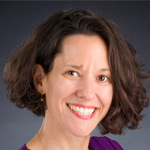 Brenda Schulman
Brenda Schulman
Brenda Schulman, director at the Max Planck Institute of Biochemistry, is among the 10 recipients of the 2019 Leibniz Prize.
Established in 1985 by the German Research Foundation, the Leibniz Prize recognizes outstanding achievement in the field of research.
Germany’s most prestigious research award, the prize comes with $2.85 million (2.5 million euros) to support future research endeavors.
The foundation is honoring Schulman for her work in the fields of biochemistry and structural biology on the molecular mechanisms of the ubiquitin system.
Before joining the Max Planck Institute, Schulman served on the faculty at St. Jude Children’s Research Hospital and as an investigator with the Howard Hughes Medical Institute.
In 2018, she was appointed an honorary professor with the Technical University of Munich.
In memoriam: Laszlo Lorand
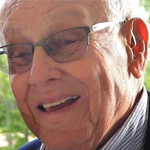 Laszlo Lorand
Laszlo Lorand
Laszlo Lorand, professor emeritus at Northwestern University, died Dec. 6. He was 95 years old.
Born in Győr, Hungary, in 1923, Lorand attended the University of Budapest, where he studied medicine. He earned a Ph.D. in biomolecular structure at the University of Leeds in 1951.
Lorand taught physiology and pharmacology at Wayne State University School of Medicine before joining the Northwestern University faculty in 1955.
At Northwestern, he was a founding member of the department of cell and molecular biology as well as the first director of an National Institutes of Health-funded biochemistry training program.
An author on more than 200 scientific publications, Lorand focused his research on thrombosis, protein associations and calcium ions.
He was preceded in death by his wife, Joyce Bruner–Lorand, and is survived by his daughter, Michele Lorand.
In memoriam: Subir Bose
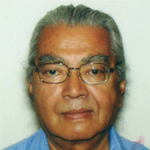 Subir Kumar Bose
Subir Kumar Bose
Subir Kumar Bose, professor emeritus of microbiology and internal medicine at St. Louis University, died July 25. He was 86 years old.
Born in Gaya, India, Bose earned undergraduate and graduate degrees from the University of Lucknow. After moving to the United States in 1958, he completed a Ph.D. in molecular biology at Washington University in 1963.
Bose joined the St. Louis University School of Medicine’s department of microbiology in 1965. He was appointed associate professor in 1968 and became a full professor in 1976. He served as interim chair of the department of microbiology from 1989 to 1991 and was appointed professor of internal medicine in 1991.
Bose’s research focused on understanding cell-to-cell interactions in intracellular infections, for which he received the United States Public Health Service research career development award.
Highly regarded as an educator, Bose hosted many Indian students and postdoctoral fellows at his lab.
After retiring in 1993, he moved to Athens, Greece, to live with his wife and collaborator, Evangelia Vretou, research director at the Hellenic Pasteur Institute.
In memoriam: Paul T. Englund
 Paul T. EnglundPaul T. Englund, Johns Hopkins University professor emeritus, died Jan. 12 of advanced Parkinson’s disease. He was 80 years old.
Paul T. EnglundPaul T. Englund, Johns Hopkins University professor emeritus, died Jan. 12 of advanced Parkinson’s disease. He was 80 years old.
Born in Worcester, Massachusetts, in 1938 to Theodore and Mildred Englund, he studied chemistry at Hamilton College, receiving a bachelor’s degree in 1960. He earned a doctorate in biochemistry at Rockefeller University in 1966 before taking a postdoctoral position at Stanford University with Nobel laureate Arthur Kornberg.
Englund joined the faculty at Johns Hopkins as an associate professor in the department of physiological chemistry in 1968 and remained there until his retirement in 2010. He became a full professor in the department of biological chemistry in 1980.
Among his positions, Englund served as a visiting scientist at the International Laboratory for Research on Animal Diseases in Nairobi, Kenya, in 1980.
He was highly esteemed as a teacher and mentor; in 2016, his former trainees contributed funds toward an endowed professorship in his name.
Tamara Doering, endowed professor of molecular microbiology at Washington University School of Medicine in St. Louis and a former Englund trainee, was quoted in a Johns Hopkins press release, saying, “Paul was a brilliant and creative scientist whose excitement and enthusiasm for research never flagged … He was also an inspiring and supportive mentor, who taught generations of trainees to do rigorous and collegial science.”
Englund was elected as a fellow of the American Association for the Advancement of Science in 2000 and elected to the National Academy of Sciences in 2012.
He is survived by his wife, Christine Schneyer Englund; his two brothers, Robert J. Englund and Donald R. Englund; and his four children, Suzanne Elizabeth Pykosh, Maria Jean Englund, Jennifer Insley–Pruitt and Peter Insley.
Send us your news
Have you recently been promoted or honored? Do you have good news to share with your fellow ASBMB members? Email it to us and don’t forget to include a photo!
Enjoy reading ASBMB Today?
Become a member to receive the print edition four times a year and the digital edition monthly.
Learn moreGet the latest from ASBMB Today
Enter your email address, and we’ll send you a weekly email with recent articles, interviews and more.
Latest in People
People highlights or most popular articles

Finding a symphony among complex molecules
MOSAIC scholar Stanna Dorn uses total synthesis to recreate rare bacterial natural products with potential therapeutic applications.

Sketching, scribbling and scicomm
Graduate student Ari Paiz describes how her love of science and art blend to make her an effective science communicator.

Embrace your neurodivergence and flourish in college
This guide offers practical advice on setting yourself up for success — learn how to leverage campus resources, work with professors and embrace your strengths.

Survival tools for a neurodivergent brain in academia
Working in academia is hard, and being neurodivergent makes it harder. Here are a few tools that may help, from a Ph.D. student with ADHD.

Quieting the static: Building inclusive STEM classrooms
Christin Monroe, an assistant professor of chemistry at Landmark College, offers practical tips to help educators make their classrooms more accessible to neurodivergent scientists.

Hidden strengths of an autistic scientist
Navigating the world of scientific research as an autistic scientist comes with unique challenges —microaggressions, communication hurdles and the constant pressure to conform to social norms, postbaccalaureate student Taylor Stolberg writes.

